Related Research Articles
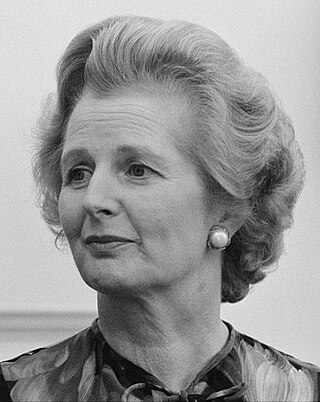
The 1979 United Kingdom general election was held on Thursday 3 May 1979 to elect 635 members to the House of Commons. The election was held following the defeat of the Labour government in a no-confidence motion on 28 March 1979, six months before the Parliament was due for dissolution in October 1979.

Judith Pamela Butler is an American philosopher and gender studies scholar whose work has influenced political philosophy, ethics, and the fields of third-wave feminism, queer theory, and literary theory.
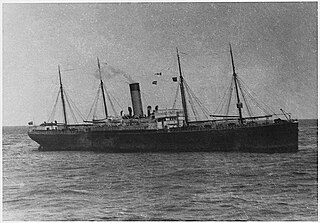
SS Californian was a British Leyland Line steamship. She is thought to have been the only ship to see the Titanic, or at least her rockets, during the sinking, but despite being the closest ship in the area, the crew took no action to assist. The United States Senate inquiry and British Wreck Commissioner's inquiry into the sinking both concluded that the Californian could have saved many or all of the lives that were lost, had a prompt response been mounted to the Titanic's distress rockets. The U.S. Senate inquiry was particularly critical of the vessel's captain, Stanley Lord, calling his inaction during the disaster "reprehensible".
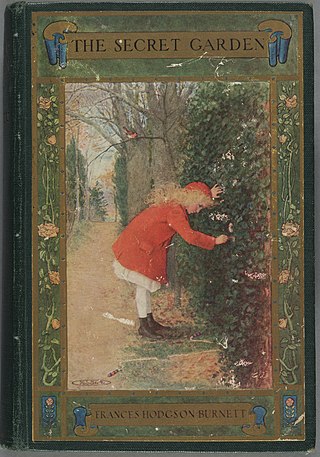
The Secret Garden is a children's novel by Frances Hodgson Burnett first published in book form in 1911, after serialisation in The American Magazine. Set in England, it is seen as a classic of English children's literature. The American edition was published by the Frederick A. Stokes Company with illustrations by Maria Louise Kirk and the British edition by Heinemann with illustrations by Charles Heath Robinson.

The Mutoscope is an early motion picture device, invented by W. K. L. Dickson and Herman Casler and granted U.S. patent 549309A to Herman Casler on November 5, 1895. Like Thomas Edison's Kinetoscope, it did not project on a screen and provided viewing to only one person at a time. Cheaper and simpler than the Kinetoscope, the system, marketed by the American Mutoscope Company, quickly dominated the coin-in-the-slot peep-show business.

A butler is a person who works in a house serving and is a domestic worker in a large household. In great houses, the household is sometimes divided into departments with the butler in charge of the dining room, wine cellar, and pantry. Some also have charge of the entire parlour floor and housekeepers caring for the entire house and its appearance. A butler is usually male and in charge of male servants while a housekeeper is usually a woman and in charge of female servants. Traditionally, male servants were better paid and of higher status than female servants. The butler, as the senior male servant, has the highest servant status. He can also sometimes function as a chauffeur.

On the Buses is a British television sitcom that was broadcast on ITV from 1969 to 1973. It was created by Ronald Chesney and Ronald Wolfe, who wrote most of the episodes. It spawned three spin-off feature films and a stage version. Despite the writers' previous successes with The Rag Trade and Meet the Wife with the BBC, the corporation rejected On the Buses, not seeing much comedy potential in a bus depot as a setting. The comedy partnership turned to Frank Muir, head of entertainment at London Weekend Television (LWT), who loved the idea; the show was accepted, and despite a poor critical reception became a hit with viewers.
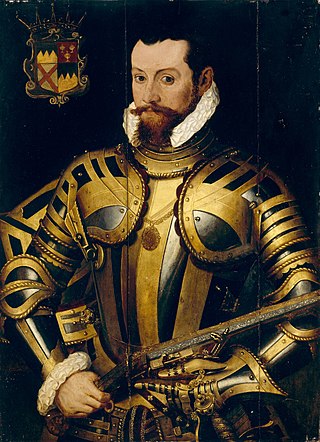
Thomas Butler, 10th Earl of Ormond and 3rd Earl of OssoryPC (Ire), was an influential courtier in London at the court of Elizabeth I. He was Lord Treasurer of Ireland from 1559 to his death. He fought for the crown in the Rough Wooing, the Desmond Rebellions, and Tyrone's Rebellion. He fought his rival, Gerald FitzGerald, 14th Earl of Desmond in the Battle of Affane in 1565.
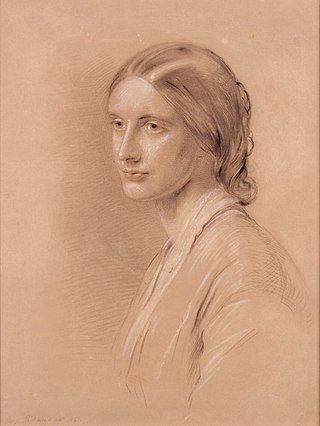
Josephine Elizabeth Butler was an English feminist and social reformer in the Victorian era. She campaigned for women's suffrage, the right of women to better education, the end of coverture in British law, the abolition of child prostitution, and an end to human trafficking of young women and children into European prostitution.

Absolute Beginners is a 1986 British musical film adapted from Colin MacInnes' book about life in late 1950s London, directed by Julien Temple. The film stars Eddie O' Connell, Patsy Kensit, James Fox, Edward Tudor-Pole, Anita Morris, and David Bowie, with featured appearances by Sade Adu, Ray Davies, and Steven Berkoff. It was screened out of competition at the 1986 Cannes Film Festival. It received coverage in the British media but was panned by critics and became a box office failure, although modern reviews have been more favourable. Bowie's theme song was very popular in the UK, spending nine weeks on the charts and peaking at number two.

Georgia Arianna Campbell, Lady Colin Campbell, also known as Lady C, is a British Jamaican author, socialite, and television personality who has published seven unauthorised books about the British royal family. They include biographies of Diana, Princess of Wales, of Queen Elizabeth The Queen Mother, and of Meghan, Duchess of Sussex and Prince Harry, Duke of Sussex.

RMS Titanic sank on 15 April 1912 in the North Atlantic Ocean. The largest ocean liner in service at the time, Titanic was four days into her maiden voyage from Southampton to New York City, with an estimated 2,224 people on board when she struck an iceberg at 23:40 on 14 April. Her sinking two hours and forty minutes later at 02:20 ship's time on 15 April resulted in the deaths of more than 1,500 people, making it one of the deadliest peacetime maritime disasters in history.

The reception history of Jane Austen follows a path from modest fame to wild popularity. Jane Austen (1775–1817), the author of such works as Pride and Prejudice (1813) and Emma (1815), has become one of the best-known and most widely read novelists in the English language. Her novels are the subject of intense scholarly study and the centre of a diverse fan culture.

Lord Colin Campbell was a Scottish Liberal politician who sat in the House of Commons from 1878 to 1885.

Cadogan Place is a street in Belgravia, London. It is named after Earl Cadogan and runs parallel to the lower half of Sloane Street. It gives its name to the extensive Cadogan Place Gardens, private communal gardens maintained for Cadogan residents. It is owned by Cadogan Estates.

Gertrude Elizabeth, Lady Colin Campbell was an Irish-born journalist, author, playwright, and editor. She was married to Lord Colin Campbell, a brother-in-law of Princess Louise, Queen Victoria's fourth daughter.

The Woman in Question is a 1950 British murder mystery film directed by Anthony Asquith and starring Jean Kent, Dirk Bogarde and John McCallum. It was wrutten by John Cresswell and Joseph Janni. After a woman is murdered, the complex and very different ways in which she is seen by several people are examined.
"It Hurts So Good" is a song written by Phillip Mitchell, and first recorded in 1971 by Katie Love and the Four Shades of Black on the Muscle Shoals Sound label. That version was not a hit, and the song was later recorded more successfully by Millie Jackson, whose 1973 recording was featured in the blaxploitation action film Cleopatra Jones. Hit versions were also recorded by Susan Cadogan and Jimmy Somerville, both titled as "Hurt So Good".

Peeping Tom is an 1897 American short comedy-drama film. The film was made by the American Mutoscope Company. It concerns a man peeping through a keyhole at an attractive young woman and his comeuppance.

Isabel Ursula Teshea, TC was an Afro-Trinidadian social worker, human rights activist, and politician. One of the founders of the People's National Movement, she served as vice chair of the party and was the first woman to hold the office. When Trinidad and Tobago gained its independence from Britain, she ran as a candidate, becoming the first woman elected in the newly established House of Representatives. She became the first woman cabinet Minister and later ambassador for the country. Posthumously, she was awarded the Trinity Cross, the highest honor of the country.
References
- ↑ Katherine Mullin (2003). James Joyce, sexuality and social purity. Cambridge University Press. p. 145. ISBN 0-521-82751-5.
- ↑ Paul Clee (2005). Before Hollywood: from shadow play to the silver screen . Houghton Mifflin Harcourt. p. 133. ISBN 0-618-44533-1.
- ↑ Roger Wilkes (7 April 2001). "Inside story: 79 Cadogan Place". The Daily Telegraph . Archived from the original on 19 May 2010.